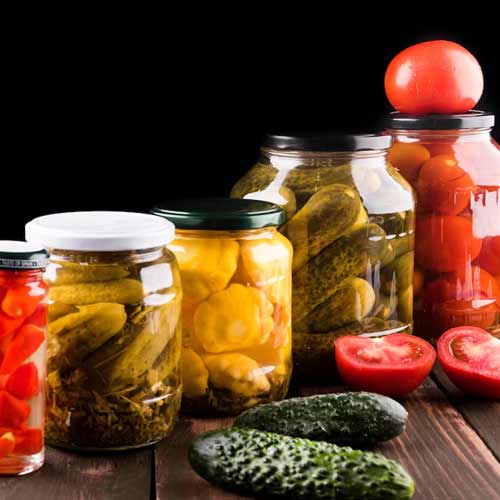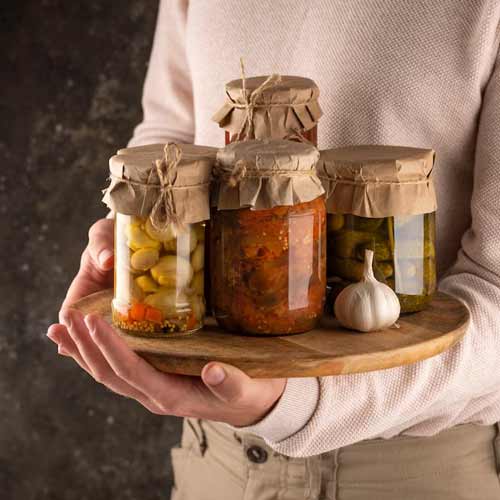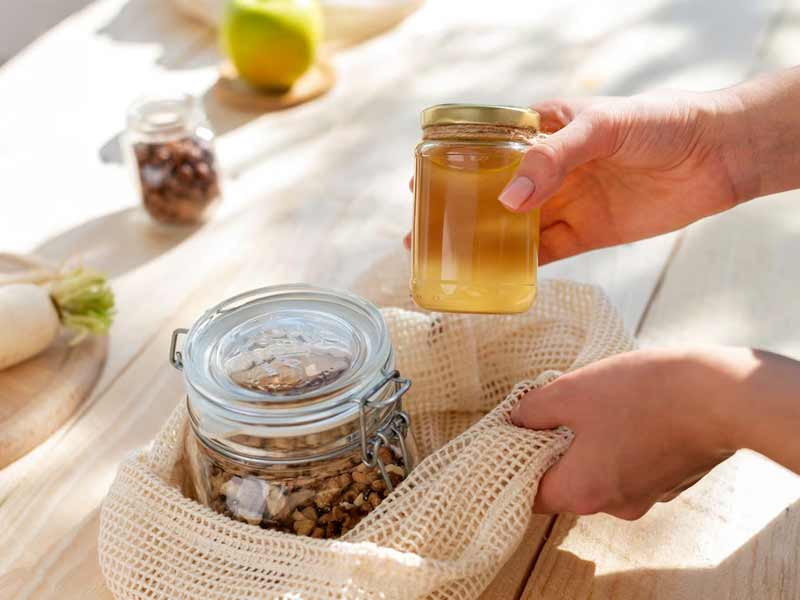Here is 8 Golden Tips for Storing Canned Food. Canning is a fantastic way to preserve the freshness and flavors of food. Whether you’ve canned your own produce or purchased commercially canned goods, proper storage is crucial to maintain their quality and safety. In this article, we’ll explore effective tips for storing canned food to ensure its longevity and prevent any potential risks. From ideal storage conditions to shelf life considerations, we’ll cover everything you need to know to keep your canned food in optimal condition.
The Importance of Properly Storing Canned Food

Storing canned food correctly is essential for maintaining its quality, flavor, and safety. Whether you’ve prepared homemade canned goods or purchased them from the store, following proper storage practices will ensure that your food remains fresh and free from spoilage. Let’s dive into some useful tips to help you store your canned food effectively.
Understanding Shelf Life and Expiration Dates
Canned food has a long shelf life, which makes it an excellent option for long-term storage. However, it’s important to understand that even canned goods have an expiration date. Most commercially canned foods can be safely consumed for two to five years after their production date, depending on the product. It’s crucial to check the expiration dates on the cans and prioritize consuming the oldest cans first to maintain freshness (Storing Canned Food).
Choosing the Right Storage Location

Selecting the right storage location for your canned food is key to ensuring its longevity. Ideally, you should store your canned goods in a cool, dry, and dark place. A pantry or a cellar with a consistent temperature is an excellent choice. Avoid areas that are prone to temperature fluctuations, such as near ovens, stoves, or direct sunlight. You can learn Troubleshooting Canning.
Temperature and Humidity Considerations
Temperature and humidity play significant roles in preserving the quality of canned food. Aim for a storage temperature between 50°F and 70°F (10°C to 21°C). Avoid storing cans in areas with high humidity, as it can lead to rusting or the growth of mold. Excessive heat or cold can also affect the quality of the food, so maintaining a moderate temperature is crucial.
Avoiding Exposure to Light and Heat
Exposure to light and heat can cause changes in flavor, texture, and nutritional content of canned food. It’s important to shield your canned goods from direct light by storing them in dark cabinets or using opaque containers. Additionally, avoid storing canned food near appliances or areas that generate heat, as it can accelerate the deterioration process.
Organizing and Rotating Your Canned Food
Proper organization and rotation are essential for managing your canned food inventory effectively. Place cans with the earliest expiration dates at the front of your storage area, ensuring they are easily accessible. This practice, known as “first in, first out,” ensures that you consume the oldest cans first and minimizes the risk of food waste (Storing Canned Food). You can Learn Benefits of Canning.
Checking for Signs of Spoilage
Regularly inspecting your canned food for signs of spoilage is crucial for maintaining food safety. Before consuming or using any canned goods, visually inspect the cans for dents, bulges, or leaks. These can be signs of bacterial contamination or spoilage. If you notice any of these issues or detect an off smell when opening the can, it’s best to discard the contents.
Safe Practices for Opening and Consuming Canned Food
When opening canned food, practice proper hygiene and ensure that your can opener is clean. After opening, transfer any leftovers to a food-safe container and refrigerate promptly. Consume the refrigerated leftovers within a few days to maintain freshness. If you’re unsure about the safety or quality of a canned product, it’s always better to err on the side of caution and discard it.
Conclusion for Storing Canned Food

Storing canned food properly is essential for preserving its quality, flavor, and safety. By following the tips outlined in this article, you can ensure that your canned goods remain fresh and delicious for an extended period. Remember to check expiration dates, maintain ideal storage conditions, and practice good hygiene when opening and consuming canned food.
FAQs (Storing Canned Food)
- Can you eat canned food past its expiration date?
- While canned food can often be consumed beyond its expiration date, it’s best to adhere to the dates provided by the manufacturer. If a can is significantly past its expiration date or shows signs of spoilage, it’s safer to discard it.
- How long can canned food be stored?
- Canned food can generally be stored for two to five years after the production date, depending on the product. However, it’s essential to check expiration dates and prioritize consuming the oldest cans first.
- Can you store canned food in the refrigerator?
- Canned food does not require refrigeration if unopened. However, if you open a can and have leftovers, it’s best to transfer them to a food-safe container and refrigerate promptly.
- Can you freeze canned food?
- Freezing canned food is not recommended, as it can affect the texture and quality of the product. Canned food is already preserved, so freezing is unnecessary.
- Are dented cans safe to consume?
- Cans with significant dents, bulges, or leaks should be discarded. These can be signs of bacterial contamination or spoilage. It’s best to prioritize safety and choose cans that are in good condition.
By following these guidelines and taking proper care of your canned food, you can enjoy the convenience and nutritional benefits of preserved goods for an extended period. Happy storing and savoring your canned delicacies!
We proudly present: 1TouchFood, a website specifically designed for online cooking education. Our platform offers a diverse range of culinary tutorials, aimed at teaching aspiring chefs and cooking enthusiasts the art of cooking from the comfort of their own homes. Whether you’re a beginner or an experienced cook looking to expand your culinary repertoire, 1TouchFood provides step-by-step video lessons, interactive recipes, and expert tips to enhance your cooking skills.
Our dedicated team of professional chefs and culinary experts have meticulously crafted each lesson to ensure a seamless and immersive learning experience. Join us on 1TouchFood and unlock your potential in the kitchen as you embark on a culinary journey filled with flavors, techniques, and newfound inspiration.
Please follow us on linkedin. You can learn all best canadian food recipes you can check our Culinary 1TouchFood Youtube and Telegram 1TouchFood page. Don’t forget Fighting Obesity Magazine and Radio Cooking.

